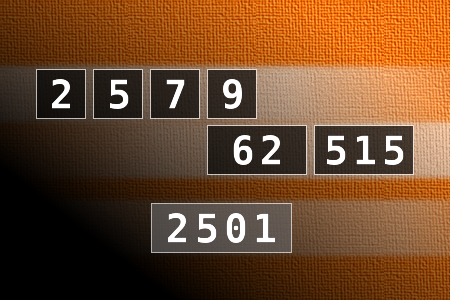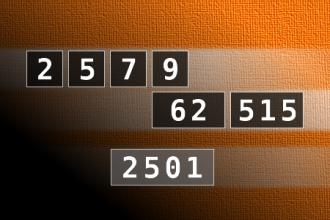Calculate the number 2501
NUMBERMANIA: Calculate the number 2501 using numbers [2, 5, 7, 9, 62, 515] and basic arithmetic operations (+, -, *, /). Each of the numbers can be used only once.Correct answers: 1
#brainteasers #math #numbermania

Locked Out
Being the office supervisor, I had to have a word with a new employee who never arrived at work on time. I explained that her tardiness was unacceptable and that other employees had noticed that she was walking in late every day. After listening to my complaints, she agreed that this was a problem and even offered a solution.
"Is there another door I could use?"

